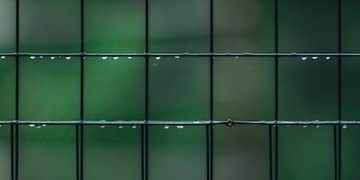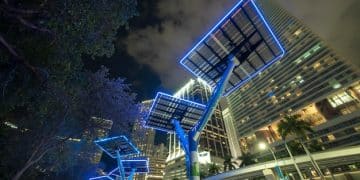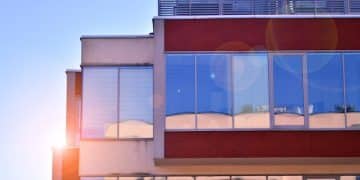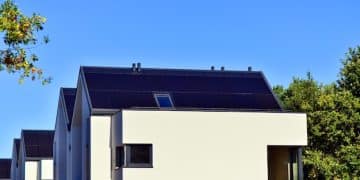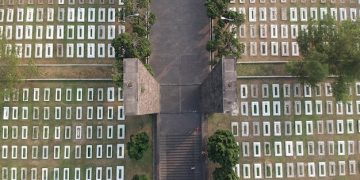Solar Panel Maintenance: Extend Life & Save Money Guide
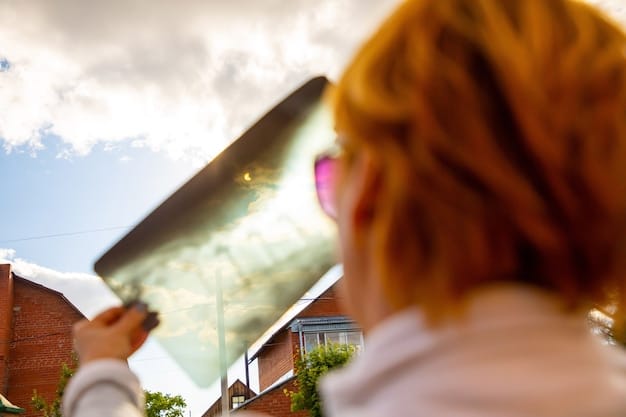
Solar panel maintenance is crucial for maximizing energy production, extending the lifespan of your solar system, and ultimately saving money on electricity bills by ensuring optimal performance and preventing costly repairs.
Investing in solar panels is a smart move for both the environment and your wallet. But like any investment, it requires proper care. This guide dives into solar panel maintenance, explaining how to extend the life of your system and save money in the long run.
Why Solar Panel Maintenance Matters
Solar panels are built to withstand the elements, but they’re not entirely maintenance-free. Over time, dirt, debris, and even snow can accumulate on the surface, reducing their efficiency. Regular solar panel maintenance ensures that your panels are performing at their best.
Think of your solar panels like a car. You wouldn’t expect your car to run smoothly for years without regular oil changes and maintenance. Similarly, solar panels need occasional attention to maintain their efficiency and longevity.
Maximizing Energy Production
Clean solar panels capture more sunlight, which translates to more electricity generation. Even a thin layer of dirt can significantly reduce the amount of sunlight reaching the solar cells.
Extending the Lifespan of Your System
Regular maintenance can also help identify potential problems early on, preventing costly repairs and extending the life of your solar panel system.
- Improved Energy Output: Clean panels mean maximum sunlight absorption.
- Prevention of Damage: Early detection of issues prevents bigger problems.
- Long-Term Savings: Effective maintenance lowers electricity bills and repair costs.
Ignoring maintenance can lead to decreased energy production, increased electricity bills, and potentially expensive repairs down the line. By investing a little time and effort in solar panel maintenance, you can protect your investment and enjoy the full benefits of solar energy for years to come.
Visual Inspection: Your First Line of Defense
Regular visual inspections are a simple yet effective way to identify potential problems with your solar panel system. You don’t need to be an expert to spot obvious issues.
A quick walk around your property can reveal a lot about the condition of your solar panels. Look for any signs of damage, debris, or other issues that could be affecting their performance.
Checking for Cracks and Damage
Inspect each panel for cracks, chips, or other signs of physical damage. These can be caused by hail, falling debris, or even extreme temperature changes.
Identifying Debris and Obstructions
Look for any debris that may be blocking sunlight, such as leaves, branches, or bird droppings. Even small amounts of debris can significantly reduce energy production.
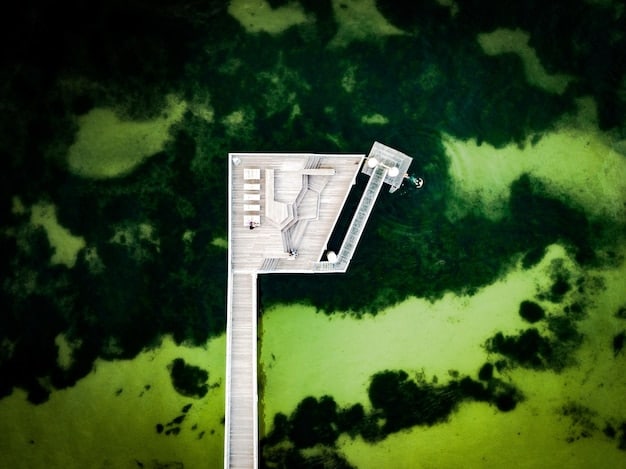
Regular visual inspections allow you to catch these issues early on, before they escalate into more serious problems. If you notice any damage or obstructions, it’s important to take action promptly to prevent further problems.
Cleaning Your Solar Panels: DIY vs. Professional
Keeping your solar panels clean is essential for maximizing energy production. The question is, should you do it yourself, or hire a professional?
There are pros and cons to both DIY and professional solar panel maintenance. The best option for you will depend on your budget, comfort level, and the specific needs of your system.
DIY Cleaning: What You Need to Know
If you’re comfortable working at heights and have the necessary equipment, you may be able to clean your solar panels yourself. However, it’s important to take certain precautions to avoid damaging the panels or injuring yourself.
When to Hire a Professional
In some cases, hiring a professional solar panel maintenance company is the best option. Professionals have the experience, equipment, and training to clean your panels safely and effectively.
- Safety First: Professionals use safety gear and follow best practices.
- Proper Equipment: They have the right tools for the job, including soft brushes and deionized water.
- Expertise: Professionals can identify potential problems and recommend solutions.
Whether you choose to clean your solar panels yourself or hire a professional, the key is to do it regularly and correctly. Clean panels mean more sunlight, more electricity, and more savings.
The Right Tools and Techniques for Cleaning
If you decide to clean your solar panels yourself, it’s important to use the right tools and techniques. Using the wrong equipment or methods can damage your panels and reduce their efficiency.
Using the correct methodology will ensure your solar panels are working like new again.
Soft Brushes and Deionized Water
Avoid using abrasive cleaners or harsh chemicals, as these can scratch or damage the surface of your panels. Instead, use a soft brush and deionized water to gently scrub away dirt and debris.
Proper Cleaning Techniques
When cleaning your solar panels, avoid applying too much pressure or scrubbing too hard. Use gentle, circular motions to remove dirt and debris without damaging the panels.
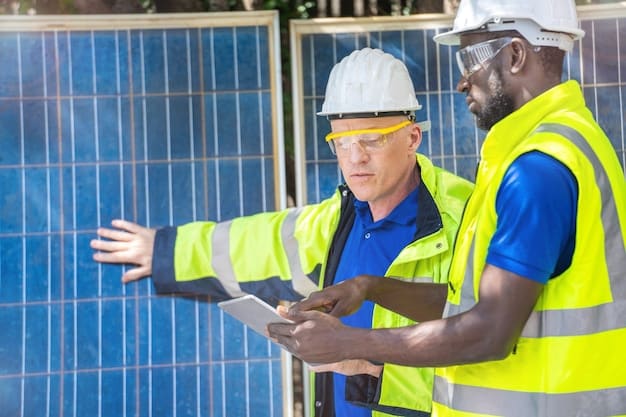
By using the right tools and techniques, you can clean your solar panels safely and effectively, maximizing their energy production and extending their lifespan.
Monitoring System Performance: Identifying Issues Early
Many solar panel systems come with monitoring systems that allow you to track their performance in real-time. These systems can provide valuable insights into the health of your panels and help you identify potential problems early on.
Understanding how to monitor your system is important for extending it’s performance.
Understanding Performance Metrics
Familiarize yourself with the key performance metrics, such as energy production, voltage, and current. These metrics can help you identify any deviations from normal performance.
Setting up Alerts and Notifications
Set up alerts and notifications to be notified of any significant changes in performance. This will allow you to take action quickly to address any potential problems.
By monitoring your system’s performance regularly, you can identify potential issues early on, preventing costly repairs and ensuring that your solar panels are operating at their best.
Protecting Your Investment: Preventing Damage
In addition to regular cleaning and monitoring, there are several other steps you can take to protect your solar panel investment and prevent damage.
These steps may seem minor, but can have a big impact on your system.
Trimming Trees and Vegetation
Keep trees and vegetation trimmed to prevent them from shading your solar panels. Even a small amount of shade can significantly reduce energy production.
Protecting Against Pests
Take steps to protect your solar panels from pests, such as birds and rodents. These animals can damage the panels or their wiring.
- Netting: Install netting to prevent birds from nesting under your panels.
- Rodent Guards: Use rodent guards to protect the wiring from chewing animals.
- Regular Inspections: Check for signs of pest activity and take action promptly.
By taking these precautions, you can protect your solar panel investment and ensure that it continues to perform optimally for years to come.
Conclusion
Maintaining your solar panels is an important step in protecting your investment. Make sure you follow these guidelines to keep your system running perfectly.
| Key Point | Brief Description |
|---|---|
| 💡 Visual Inspections | Regularly check for cracks, debris, and obstructions. |
| 💧 Cleaning Methods | Use soft brushes and deionized water for cleaning, or hire a professional. |
| 📊 Performance Monitoring | Track system performance to identify issues early. |
| 🌿 Prevention is Key | Trim trees, protect against pests, and ensure system longevity. |
FAQ
▼
The frequency of cleaning depends on your environment. Generally, cleaning your panels every 6 months to a year is sufficient for most locations, but areas with high dust or pollution may require more frequent cleaning.
▼
It’s best to use deionized water to clean your solar panels. Tap water contains minerals that can leave deposits on the panels, reducing their efficiency over time. Deionized water ensures a spot-free clean.
▼
If you notice any damage, such as cracks or chips, contact a qualified solar panel technician immediately. Do not attempt to repair the panels yourself, as this could be dangerous and void your warranty.
▼
Birds can nest under solar panels and damage the wiring. Installing netting around the panels is an effective way to prevent birds from nesting and protect your system from damage.
▼
Most solar panel warranties cover manufacturing defects and performance degradation, but they typically do not cover routine maintenance like cleaning. Check your warranty details to understand what is covered.
Conclusion
By following these tips for solar panel maintenance, you can extend the life of your system, maximize energy production, and save money on electricity bills. Regular maintenance is an investment that pays off in the long run, ensuring that your solar panels continue to perform optimally for years to come.
